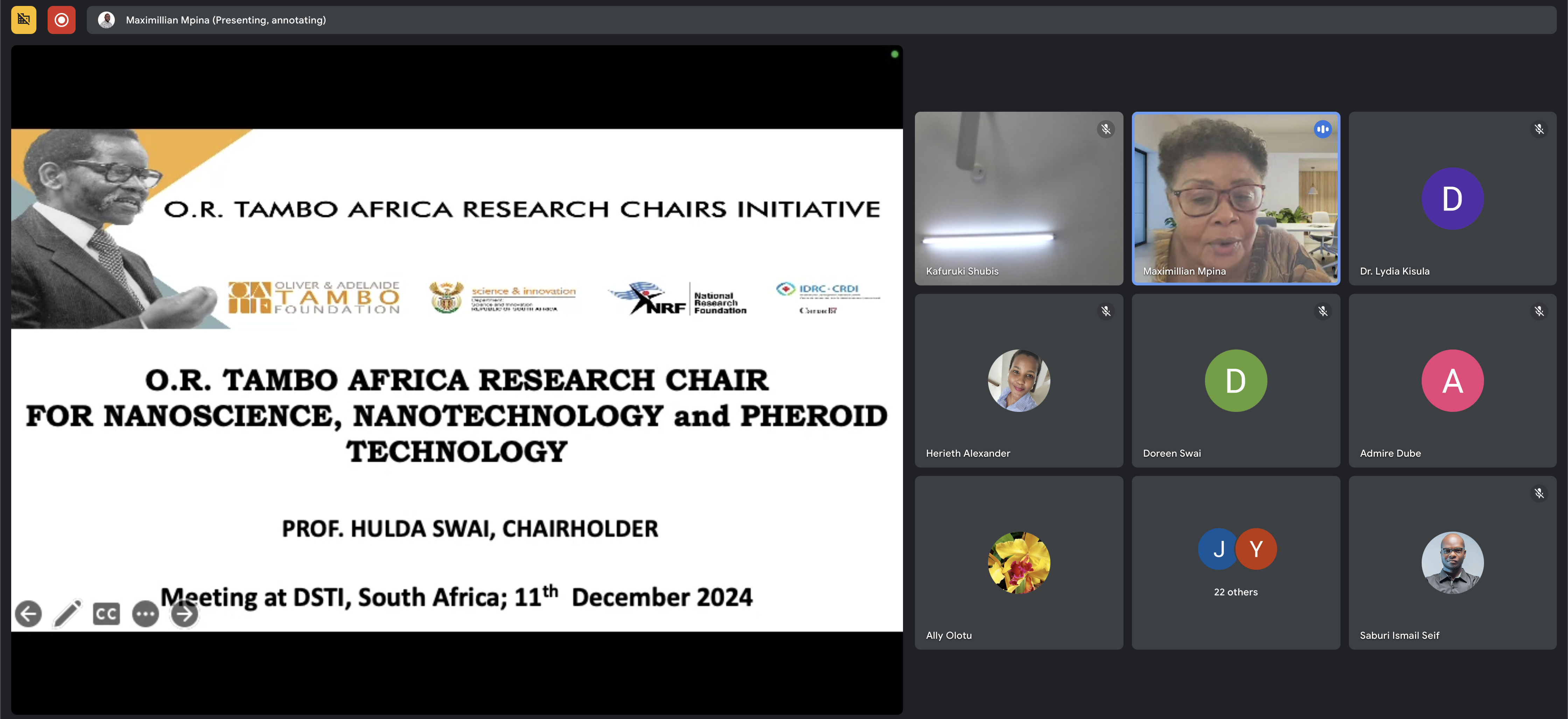
WEBINAR: Exploring nanotechnology’s transformative role in malaria drug discovery

Scientists, researchers, and students from across Africa engaged physically and virtually from the Ifakara Health Instiute center in Bagamoyo, Tanzania today when they took part in an inspiring exploration of nanotechnology’s transformative role in antimalarial drug discovery.
Led by Professor Hulda Swai, the Oliver Tambo African Research Chair on Nanoscience and Nanotechnology, the event highlighted groundbreaking research and innovative solutions to one of the continent’s most pressing health challenges.
The hybrid session began with welcome remarks from the Director of Science at the Ifakara Health Institute, Dr. Ally Olotu, and Ifakara’s Head of the Training and Capacity Building Department, Dr. Kafuruki Shubis, who set the tone for an engaging session
Cutting-edge nanotechnology research
The first scientific session, moderated by Dr. Maximillian Mpina, featured leading experts sharing their cutting-edge research. Prof. Hulda Swai opened the session with an overview of nanotechnologies in drug development, emphasizing their potential to revolutionize malaria treatment. This was followed by Prof. Admire Dube shared his research on using nanoparticles to boost the immune system and deliver drugs effectively.
Dr. Kamaka Ramadhani discussed the potential of combining herbal remedies with modern antimalarial drugs, and Dr. Daniel Madulu explained how computer models are helping to discover and test new malaria treatments.
Spotlight on young scientists
The second session highlighted the innovative work of young scientists mentored under the Oliver Tambo Research Chair. Led by Dr. Anneth Tumbo, the session showcased projects demonstrating how nanotechnology can address malaria.
James Beatus Mwanjombe presented his research on developing nanoparticles for targeted treatment of cerebral malaria. Yohana Amos shared advancements in nanoformulations for delivering quinine directly to malaria-infected cells. Dr. Clarence Kabaka introduced new methods for targeting infected erythrocytes using immunoliposomes, and Dr. Lydia Kisula concluded with her work on creating promising new antimalarial drug candidates.
The day’s discussions culminated in a roundtable session facilitated by Dr. Ally Olotu, where participants engaged in vibrant exchanges of ideas and reflected on the innovative solutions presented. The dialogue underscored the importance of interdisciplinary collaboration and homegrown scientific leadership in tackling Africa’s health challenges.
The event not only highlighted the promise of nanotechnology in transforming malaria treatment but also provided a platform to inspire the next generation of African scientists committed to addressing critical health issues on the continent.
